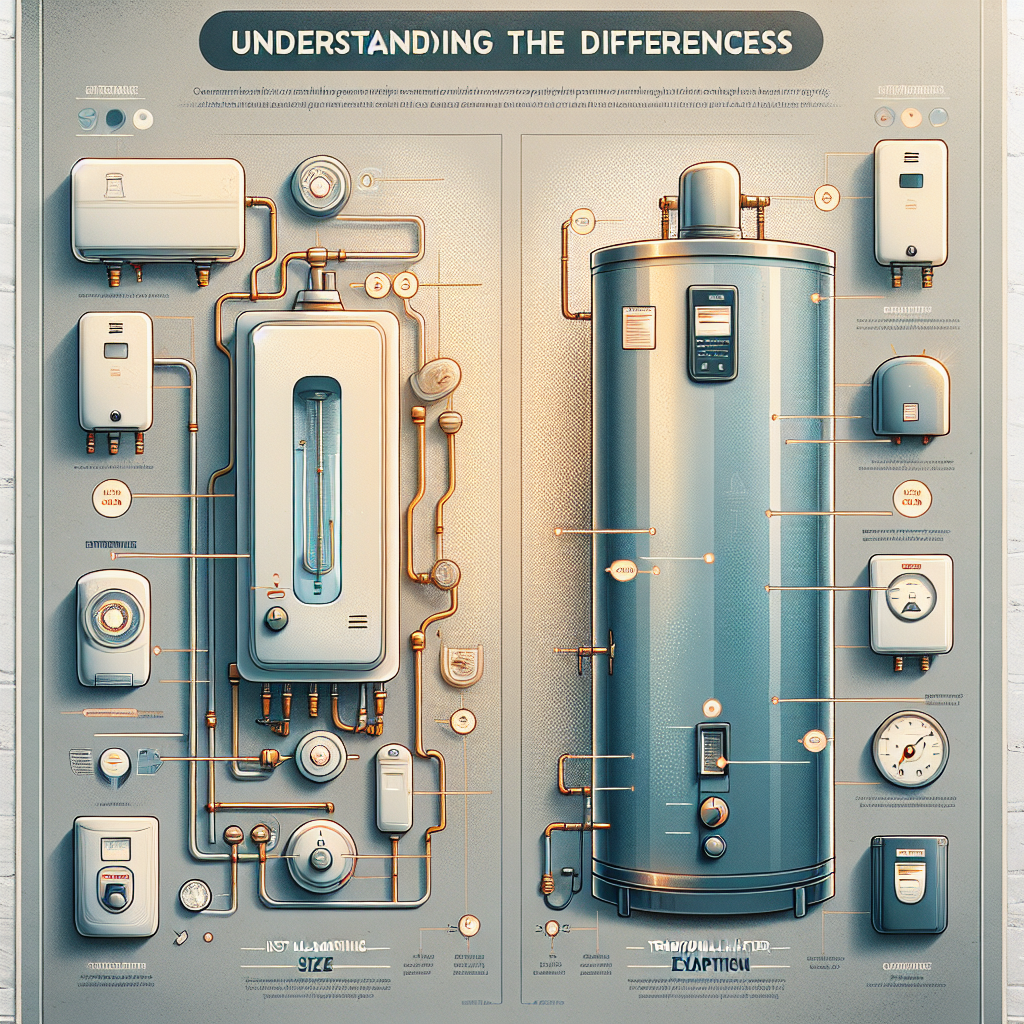When it comes to home comfort, few things are as essential as a reliable water heater. Whether you’re washing dishes, taking a shower, or doing laundry, hot water plays a crucial role in our daily routines. However, choosing the right type of water heater can be overwhelming. In this article, we’ll delve into the differences between point-of-use (POU) and traditional water heaters, helping you make an informed decision that suits your needs.
What Are Traditional Water Heaters?
Traditional water heaters, also known as tank water heaters, are the most common type found in homes. They consist of a large storage tank that holds heated water until it’s needed. Here’s how they work:
- Heating Mechanism: Using either gas or electricity, traditional heaters maintain the water temperature at a preset level, ensuring a ready supply of hot water.
- Storage Capacity: These units typically range from 20 to 80 gallons, depending on household needs.
- Recovery Rate: This refers to how quickly the heater can replace the hot water after it has been used.
Benefits of Traditional Water Heaters
- High Demand Supply: Ideal for larger households that require multiple hot water sources simultaneously.
- Reliability: Provides a consistent hot water supply, as it stores a significant volume of hot water.
- Cost-Effectiveness: Generally, upfront costs are lower than other options, making them accessible for many homeowners.
Drawbacks of Traditional Water Heaters
- Space Requirements: They require considerable space for installation and storage.
- Energy Consumption: Constantly heating and maintaining the water can lead to higher energy bills, especially when not in use.
- Limited Hot Water Supply: Once the stored hot water is depleted, residents must wait for the tank to refill and reheat.
What Are Point-of-Use Water Heaters?
Point-of-use water heaters are compact units that heat water on demand, directly at the point of use, such as sinks or showers. Their size and design make them a popular choice in various settings.
Key Features of Point-of-Use Water Heaters:
- Instant Heating: Heats water only when needed, eliminating the need to store large volumes.
- Compact Size: These units can fit under sinks or be mounted on walls, saving valuable space in your home.
- Various Types: Available in electric, gas, and tankless options, catering to different preferences and household layouts.
Advantages of Point-of-Use Water Heaters
- Energy Efficiency: By heating water on demand, they reduce energy consumption and lower utility bills.
- Space-Saving Design: Ideal for small apartments or homes without extra storage for hefty water tanks.
- Unlimited Hot Water: As they don’t rely on stored water, homeowners can benefit from continuous hot water supply.
Disadvantages of Point-of-Use Water Heaters
- Limited Flow Rate: They may struggle to provide enough hot water for multiple simultaneous uses, like a shower and washing machine running at the same time.
- Higher Initial Costs: While they can save on energy bills long-term, the initial investment can be higher than traditional models.
- Installation Complexity: Depending on plumbing layouts, installing point-of-use units might require additional plumbing work.
Which Option Is Right for You?
Choosing between a point-of-use and a traditional water heater heavily relies on your household’s specific needs. Here are some considerations to help you decide:
1. Household Size
If you have a larger family or multiple bathrooms needing hot water simultaneously, a traditional water heater may be the way to go. In contrast, smaller households or single occupants might find that a point-of-use heater meets their needs efficiently.
2. Available Space
Consider how much space you have for water heating solutions. If you have limited space, a point-of-use heater can be an excellent choice for its compact design.
3. Energy Efficiency
For energy-conscious homeowners, the efficiency of point-of-use water heaters can lead to significant cost savings in the long run, especially if hot water usage is minimal.
4. Budget Constraints
Evaluate your initial budget versus long-term savings. While traditional water heaters typically have lower upfront costs, point-of-use models may save more money on energy bills over time.
Conclusion
Understanding the differences between point-of-use and traditional water heaters is crucial for making an informed decision about your home’s water heating needs. While traditional water heaters offer reliability and high capacity, point-of-use options provide energy efficiency and space savings. Ultimately, the best choice for you will depend on your household size, space availability, energy preferences, and budget constraints.
Whichever option you choose, ensuring that your home has a reliable source of hot water will significantly enhance your comfort and quality of life. Take your time to evaluate your needs, and find the water heater that best fits your lifestyle!


